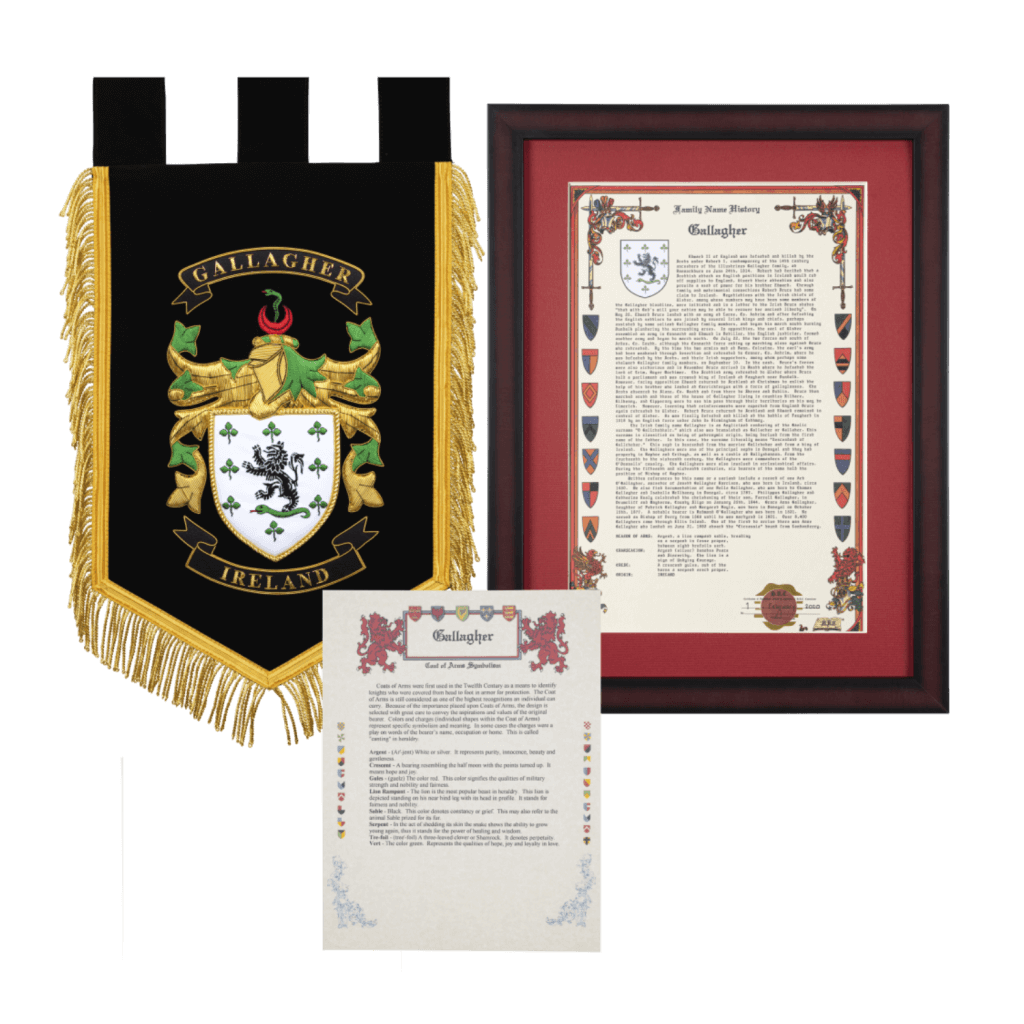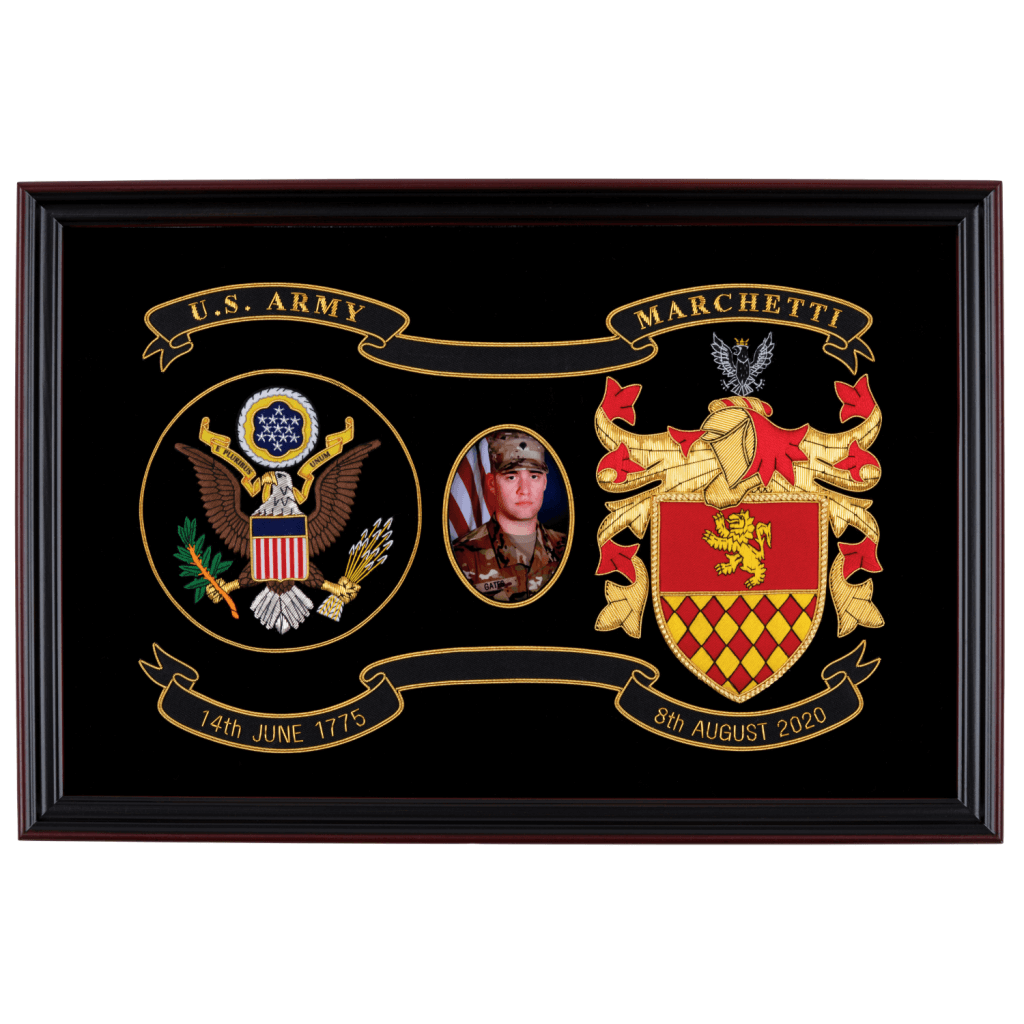1. Patronymic Surnames
Patronymic surnames are derived from the first name of one’s father, grandfather, or an even earlier male ancestor. Though much rarer, some names were matronymic in origin, deriving from one’s mother or a female ancestor.
Many patronyms predate the use of surnames and family names. Take, for example, the descendants of Niall of the Nine Hostages (Niall Noigiallach). The descendants of Niall were known as the Uí Néill (O’Neill) clan, hence the surnames Ó Neil, O’Neill, O’Neal, etc. Of note is that “O” was originally Ó (the accent over the O in Gaelic is called a “fada”, literally meaning “long”, and when found over a vowel signals an elongation of the vowel sound). The Ó in turn came from the Gaelic Ua, which means grandson or descendant. The prefix is most often anglicized to O’.
The first generation of the Uí Néill clan were his sons, seven in all, known as the sons of Niall. The actual name Uí Néill did not come into being until the time of Niall’s grandsons and great-grandsons. One of Niall’s sons, Eoghan, in turn, fostered the name MacEoghan (MacEoin, McKeone, McKewan), another son Conall gave rise to the name MacConall (MacConnell) and then O’Connell, and so the O’Neills, MacEoghans, O’Connells, et. al are all from the same original clan or family, but have taken different patronymic names.
A patronymic system was also used in medieval Spain. For example, Álvaro, the son of Rodrigo would be named Álvaro Rodríguez. His son, Juan, would not be named Juan Rodríguez, but Juan Álvarez. Over time, many of these patronymics became family names and now form some of the most common names in the Spanish-speaking world.
2. Local Surnames
Local names, which are also referred to as topographic surnames, were given to a person who resided near a physical feature such as a hill, stream, church, or type of tree. They were also sometimes used to denote a person’s nationality.
The most popular examples of nationality-derived surnames are:
• English (one who came from England)
• Scott (one who came from Scotland)
• Breton (one who came from Brittany – France)
• Fleming (one who came from Flanders – Belgium)
• Angwin (one who came from Anjou – France)
• Loring (one who came from Lorraine – France)
• Alemán (one who came from Germany)
Habitation names form the other broad category of surnames derived from locations. These were taken from pre-existing names for villages, towns, and parishes. Other local names originated from the names of manors, estates, regions, and entire counties.
3. Occupational Surnames
Occupational names that were derived from the common trades of the medieval era transcended European cultural and linguistic boundaries.
This phenomenon is demonstrated by names like the following:
• German name Schumaker, meaning maker of shoes
• Polish and Jewish name Stolarski, meaning joiner
• Dutch name Schuyler, meaning teacher
• Italian name Calderone, meaning seller of spices
• Spanish name Molinero, meaning miller
• Spanish name Guerrero, meaning warrior
4. Surnames of Office:
Similarly, surnames of office, which include military, judicial, papal, and other positions of authority, are widespread throughout Europe. Those who were involved in the military or feudal armies were given names such as the following:
• English surname Archer, meaning archer or bowman
• French surname Chevalier, meaning knight
• German surname Jeger, meaning hunter
• German surname Hoffman, meaning man of the court
5. Nicknames
Similarly, surnames of office, which include military, judicial, papal, and other positions of authority, are widespread throughout Europe. Those who were involved in the military or feudal armies were given names such as the following:
• English surname Archer, meaning archer or bowman
• French surname Chevalier, meaning knight
• German surname Jeger, meaning hunter
• German surname Hoffman, meaning man of the court







